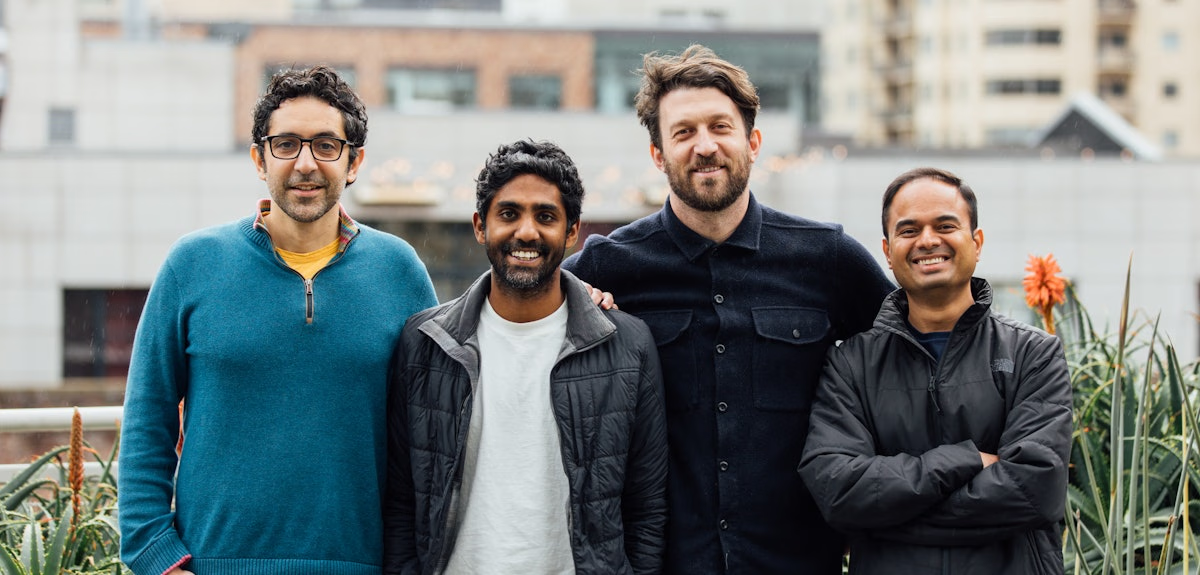
Spotlight On: Aleks Dahlberg
In Sahha founder Aleks Dahlberg's own words, his startup was born out of a pretty unconventional path. A healthtech startup that uses device data to predict user mental health passively, Sahha is informed by Aleks' unique history with his own mental health, and his observation of the opportunity for existing technology to empower how we deliver value and care to people.
Read on to find out more about Sahha's bright future, who's who in the Dunedin startup zoo, and what he thinks of as his very first startup (hint: it involves Eminem).
Blackbird: Tell us a bit about your history and what led you to the initial idea for Sahha.
Aleks Dahlberg: I grew up all over the south of NZ. Nelson, Motueka, Christchurch, St Arnaud, Timaru, Dunedin and even spent some time living in Bahrain. I was interested in computers from a young age – first getting into games before moving into media and programming.
Technically my first startup would have been flicking pirated mixtapes off to friends at school that I used to create with our duel tape cassette player: System of a Down, Linkin Park, Eminem – the classics. Other parents wouldn’t let their kids listen to all the new music, finding product market fit for that one was so easy.
My last company was in the Proptech space, called KITT, I was initially trying to solve a problem for my dad and it ended up ballooning into something else. We eventually landed on a model that upset traditional property management, where firms were over-encumbered with bad processes and inefficiencies. We knew automation could really change things making it simple, transparent and affordable. When things started working I actually realised this was not my passion. Someone else took over and it’s scaling today, I’m lucky to have been part of that and blessed to still have a stake in its future.
For me the road getting to Sahha was born out of a pretty unconventional and often traumatic youth. I experienced many of the severe challenges mental health has on people, particularly within my family. I witnessed plenty of domestic violence, poor communication and suicide attempts, this was all too common for me and I chose to leave home at the age of 15. I eventually moved to a community in which I started to properly heal; though self-discovery and with the help of close friends. I eventually found myself in Dunedin where I then had a very serious TBI after a head first fall from a balcony. I suffered damage to my brain which complicated how I communicated and expressed feelings and thoughts significantly. This would effect my mental health further. It was during this time when I started to think deeply how technology can be used to effectively communicate the human state, and deliver value based upon it. After leaving my last company, I’d obsessed over this and joined an accelerator where through experimenting with ideas on how to solve some of these issues we eventually landed on an API that would empower existing products with the technology to predict the mental health status of a person using their unique behaviour, and so Sahha was born.
BB: Sahha uses smartphone data to predict user mental health passively. Can you tell us a bit more about what that means in practice?
AD: The devices we use daily collect streams of data, some of this data comes from the sensors on the device, such as the gyroscope, accelerometer etc. This data is used to calculate things like steps, sleep and phone usage. What Sahhas does is take that data (we call it “behavioural data” as it’s often an indicator of the behaviour we exhibit) and use it to predict the mental health status of a person, relative to our machine learning models that we have trained to identify patterns in this data as they are correlated to different psychological instruments such as the PHQ9 (a tool used to provide an indicator of the severity of depression).
Currently, we rely on tools like mental health assessment questionnaires which are often self-reported. The resulting data can suffer from subjectivity and recency bias, and this can lead to all sort of problems – potentially even a misdiagnosis (it’s important to add here that Sahha is not a diagnostic tool yet). Subjective data is not a bad thing; for example, a break-up might impact a person's mental health and the subjective experience there is important to note. The collection and use of objective data such as what Sahha provides offers another layer that empowers how we deliver value and care to people. For example, technology that understands what behaviours are associated with a person's mental health without asking them about it can create a more personalised user experience, one that does not require the user to do any work in order to receive significant value.

BB: It seems like there's an incredibly broad customer base for Sahha - but what's the pathway to commercialisation? Any customer groups you're focussed on first?
AD: Indeed, this technology has an incredibly bright future, we see it as being a very regular tool in the toolkit of developers and product teams everywhere. For now, we’re focused on integrating it into digital health mostly in software/app based products that provide some form of mental health, talk therapy or telehealth capability where Sahha can provide immediate impact through decreasing survey fatigue, increasing retention and significantly improving user data insights to deliver a much better user experience.
BB: You had a smash debut on Product Hunt (and we hear you've helped others in the Blackbird portfolio too!) - can you share any launch day tips for others, or advice on making a PH launch the most successful it can be?
AD: Indeed we did! Product Hunt is a powerful tool, but in all honesty, the best part of a Product Hunt launch is the network effect is has, even outside of the website – and this comes down to making sure you have a solid base of supporters who will shout your name from the rooftops when it goes live. Know who that list is and motivate them to take action and spread the message on the day.
BB: You're based in Dunedin - what's the startup scene like there, any fellow founders or companies to watch?
AD: It’s unlike other scenes, down here there is a bit more grit and rawness. There is a growing interest in the startup community here and I hope that keeps continuing. Keep an eye out for what the Codelingo team is working on, Jesse and Trevor are an extremely agile duo and their solving big problems in the developer tool space when it comes to code collaboration.
BB: Finally, what excites you most about the future Sahha is building?
AD: There are many pieces that I feel are missing the link between us and the technology we use or rely on daily to give us value, care or insight – and one of those pieces is the ability for these tools to understand us and react to us as thinking, feeling and knowing beings. Technology like Sahha will offer a bridge between these tools and who we are so that our interactions with them can feel more fluid, natural or instinctual. I want people to experience a world like that, and by making it simple for teams of build technology that can do this we are making it a reality.
Aleks' Spotlight On:
A book that is worth reading: The Lord of the Rings by J.R.R Tolkien (in fact, anything Middle Earth related, I’m a fan of tales and myths) and Simulacra and Simulation by Jean Baudrillard
A podcast you never miss or your favourite music album: The Economist Podcast, Björk's Vespertine
The last great article you read: This one is hard to answer, but one I’ve been reflecting again recently is The Human Crisis, a lecture from Albert Camus.
Someone to follow on social media: Pursuit of Wonder on Youtube



.jpg)






